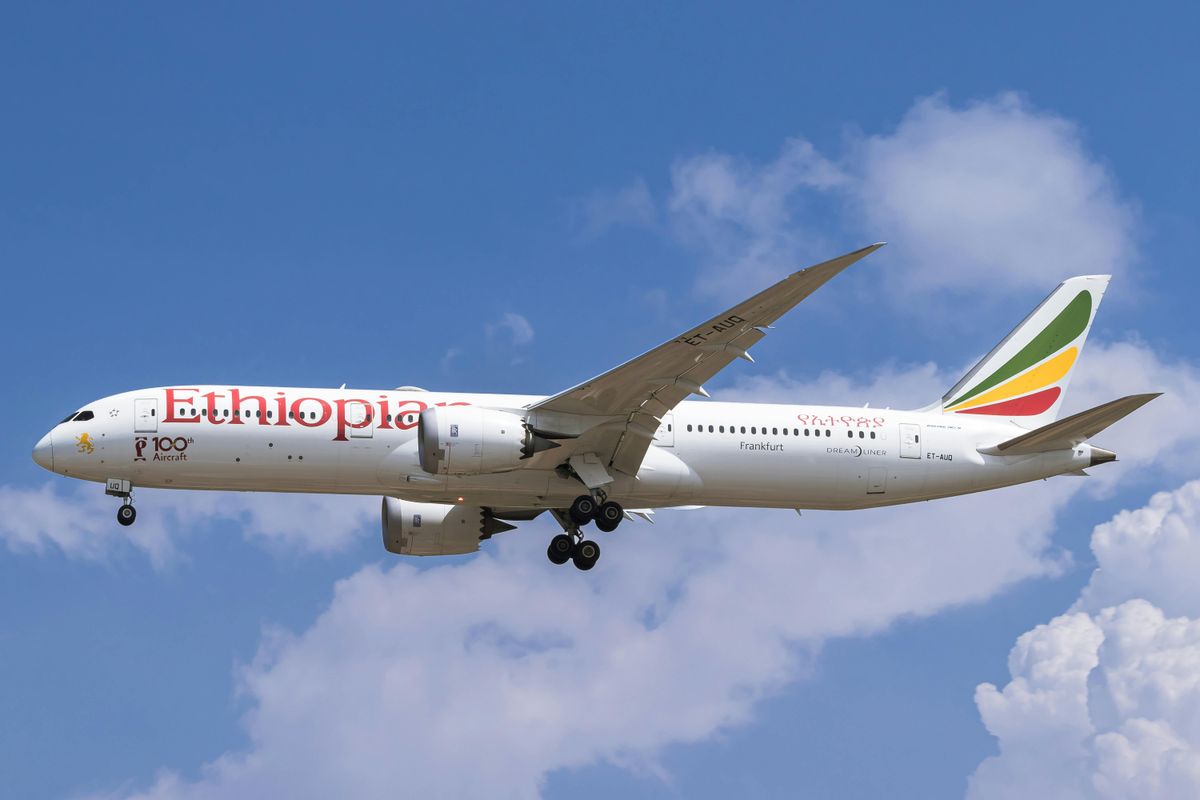Russia is urgently trying to secure an ACMI (Aircraft, Crew, Maintenance, and Insurance) leasing agreement with Ethiopian Airlines as of August 2025. The goal is to solve Russia’s shortage of working commercial airplanes, a problem made worse by ongoing Western sanctions. However, the deal is not yet final, and faces big legal, operational, and political challenges.
Russia’s Trade Commissioner to Ethiopia, Yaroslav Tarasyuk, met with the Ethiopian Civil Aviation Authority (ECAA) and Ethiopian Airlines in July 2025. He proposed a broad partnership, with the main focus on a wet-lease (ACMI) deal. This would let Russian airlines use modern Western-built jets, like Boeing and Airbus planes, under Ethiopian registration. Ethiopian Airlines would provide the planes, crew, maintenance, and insurance. The talks also included possible sales of aviation communication equipment to Russia and building a new aircraft maintenance center in Addis Ababa.

This push follows the 2024 Ethiopia-Russia Air Services Agreement, which set up rules for closer aviation ties between the two countries. Still, as of August 2025, neither Ethiopian Airlines nor the Ethiopian government has confirmed that the ACMI deal is complete. No planes have been delivered to Russian carriers under this plan.
Major Obstacles and Risks
The biggest challenge is whether this ACMI arrangement would break US and EU sanctions on Russia. Leasing Western-made planes to Russian airlines, even through a third party like Ethiopian Airlines, could put the airline at risk of secondary sanctions. This means Ethiopian Airlines could lose access to Western airspace and banking systems, which are vital for its international business.
Another problem is that much of Ethiopian Airlines’ fleet is leased from Western companies. These lessors usually ban subleasing or wet-leasing to countries under sanctions, like Russia. This rule sharply limits the number of planes Ethiopian Airlines could legally offer to Russia.
Maintenance and insurance are also tricky. Western suppliers and insurers are not allowed to support Russian operations because of sanctions. This makes it hard to keep the planes safe and properly insured if they are used in Russia. There are also worries about the safety of flying modern jets in Russia, where getting spare parts and technical help is very difficult. Recent deadly accidents involving older Russian planes have made these concerns even more serious.
Stakeholders and Official Views
The Russian government is pushing hard to make ACMI deals with airlines outside the West to keep its commercial aviation sector running. Russian officials have spoken openly about these talks and want to move quickly.
Ethiopian Airlines has not made any public statements confirming the deal. The airline is said to be carefully weighing the legal and reputation risks, as well as whether the plan would work in practice.
The Ethiopian Civil Aviation Authority is involved in the talks but has not taken a public position. The ECAA is also looking at broader aviation partnerships with other countries under sanctions, such as North Korea.
Western governments have not commented directly on this specific deal. However, US and EU officials have warned airlines in other countries not to help Russia get Western aircraft, threatening secondary sanctions if they do.
Key Numbers and Facts
- Ethiopian Airlines has a fleet of over 120 planes, including Boeing 787s, Airbus A350s, and Boeing 777s. The airline has more than 60 new planes on order.
- Russia has imported $14.4 million worth of aircraft parts through third countries in recent months. Of this, $8.9 million was for Boeing parts, showing how hard Russia is working to get around sanctions.
How the ACMI Model Would Work
Under the ACMI model, Ethiopian Airlines would keep control of the planes. The aircraft would be registered in Ethiopia and flown by Ethiopian crews. In theory, this could protect Russian airlines from direct sanctions. However, any use of Western-made planes in Russia would need careful legal checks to avoid breaking leasing contracts and international sanctions.
Expert Opinions
Aviation experts say that ACMI deals with non-Western airlines could give Russia a way to keep its airlines running. But the legal and reputation risks for partners like Ethiopian Airlines are very high and might be too much to accept. Some warn that if Ethiopian Airlines goes ahead, it could be blacklisted or lose access to Western markets, which are crucial for its global business.
Others think the deal could work if it is set up with strong legal protections and only uses non-Western aircraft. Still, Western governments would likely watch closely and could take action if they see any violations.
Background and Recent History
Since 2022, Western sanctions have made it almost impossible for Russia to buy or maintain modern commercial planes. Russian airlines have had to take parts from their own fleets and look for new suppliers in Asia, the Middle East, and Africa. Russia’s efforts to build its own airliners, like the MC-21, have not met the needs of its airlines. The country’s aviation safety record has also gotten worse, with several major accidents in 2024 and 2025.
What’s Next?
The future of the Ethiopia-Russia ACMI talks is still unclear as of August 2025. The deal depends on legal approval, Ethiopian Airlines’ risk assessment, and how Western governments and lessors respond. If the agreement goes ahead, it could set an example for other non-Western airlines thinking about similar deals with Russia. This could change the way global aviation alliances work.
However, Western authorities are likely to keep a close eye on the situation. They could take steps to punish any airline or country that helps Russia get around sanctions. This ongoing pressure may affect the final decision.
Practical Guidance for Stakeholders
- For airlines: Carefully review all leasing contracts and international sanctions before entering any ACMI deals with Russia.
- For governments: Stay updated on the latest sanctions and official warnings from the US and EU.
- For travelers: Watch for possible changes in flight routes or airline services if sanctions are enforced.
For more information about Ethiopian Airlines and its fleet, visit the official Ethiopian Airlines website.
As reported by VisaVerge.com, the situation is changing quickly, and the risks for Ethiopian Airlines are high. The outcome will have a big impact on global aviation and how sanctions are enforced.
In summary, Russia is seeking an ACMI deal with Ethiopian Airlines, but the agreement is not final and faces many legal and practical hurdles. The next steps will depend on legal reviews, risk assessments, and the actions of Western governments. The world is watching closely to see what happens next.
This Article in a Nutshell












